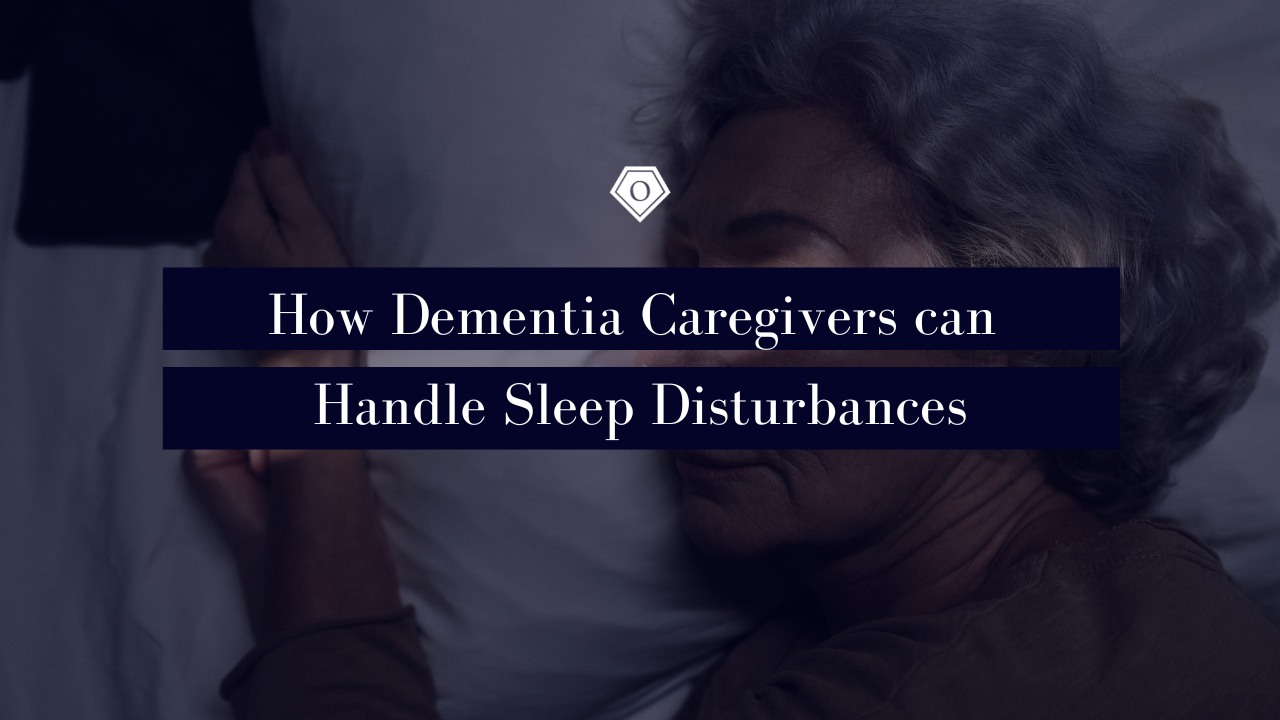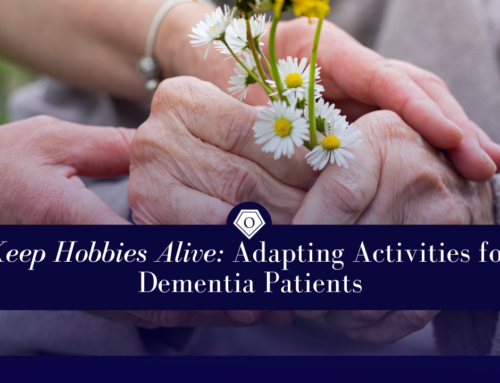Caring for individuals with dementia presents family caregivers with a myriad of challenges, and one of the most perplexing and exhausting hurdles they often face is managing sleep disturbances.
The disruptive sleep patterns commonly experienced by dementia patients not only impact their own well-being but also place significant strain on the caregivers who strive to provide attentive and compassionate support. Navigating this complex terrain requires a combination of understanding the underlying causes of sleep disturbances, implementing effective strategies to create a soothing sleep environment, and prioritizing self-care to ensure caregivers maintain their own physical and mental health.
In this guide, we delve into practical approaches and insights that dementia caregivers can employ to navigate the often elusive realm of sleep management, ultimately enhancing the quality of life for both the individuals they care for and themselves.
Remember, sleep disturbances in dementia patients are common. As dementia progresses, changes in the brain can affect the sleep-wake cycle and circadian rhythms. This disruption can lead to difficulties in falling asleep, frequent awakenings during the night, and daytime sleepiness.
It’s important to understand that these sleep disturbances are not intentional behaviors on the part of the individual with dementia, but rather a result of neurological changes that affect their internal body clock. The normalization of sleep disturbances in the context of dementia underscores the importance of employing strategies to manage these disruptions, both for the well-being of the person with dementia and for the caregivers who tirelessly provide support.
Strategies to help dementia caregivers manage sleep disturbances:
- Establish a Routine: Create a consistent daily routine for the person with dementia. Regular sleep and wake times can help regulate their internal body clock and improve sleep patterns.
- Create a Calming Environment: Make the sleep environment conducive to rest. Keep the bedroom dark, quiet, and at a comfortable temperature. Consider using blackout curtains and white noise machines to minimize disturbances.
- Limit Stimulants: Limit the intake of caffeine and alcohol, especially in the hours leading up to bedtime. These substances can disrupt sleep.
- Encourage Physical Activity: Engage the person with dementia in regular physical activity during the day. Physical exercise can help promote better sleep at night.
- Manage Daylight Exposure: Encourage exposure to natural light during the day, as it helps regulate the body’s circadian rhythm. Sunlight exposure in the morning can be particularly beneficial.
- Avoid Heavy Meals Before Bed: Avoid serving heavy or spicy meals close to bedtime, as they can cause discomfort and disrupt sleep.
- Monitor Medications: Consult with the healthcare provider about the timing of medications that might affect sleep. Some medications can contribute to sleep disturbances.
- Limit Naps: Excessive daytime napping can interfere with nighttime sleep. Encourage short and early-morning naps if needed, but avoid long naps close to bedtime.
- Engage in Relaxation Techniques: Encourage relaxation techniques such as deep breathing, meditation, and gentle stretching before bedtime to promote a sense of calm.
- Limit Screen Time: Reduce screen time, including exposure to electronic devices like smartphones, tablets, and TVs, in the hours leading up to bedtime. The blue light emitted by screens can interfere with sleep.
- Monitor Fluid Intake: Reduce fluid intake in the evening to minimize the need for nighttime bathroom trips.
- Offer Comforting Activities: Engage the person with dementia in calming activities before bedtime, such as listening to soothing music, reading a book, or practicing gentle aromatherapy.
- Consult a Healthcare Professional: If sleep disturbances persist, consult a healthcare professional. They can assess whether there are any underlying medical issues contributing to the sleep problems and offer appropriate interventions.
- Consider Respite Care: If sleep disturbances become overwhelming for the caregiver, consider arranging for respite care to provide temporary relief and a chance to catch up on sleep.
- Prioritize Self-Care: Dementia caregivers need to prioritize their own well-being. Practice self-care by getting enough rest, seeking support from others, and maintaining your own sleep hygiene.
Remember that managing sleep disturbances in dementia patients can require patience and trial and error. Not all strategies will work for every individual, so it’s important to tailor your approach to the specific needs and preferences of the person you’re caring for.
Caring for oneself as a dementia caregiver while managing the sleep disturbances of a loved one requires intentional strategies to maintain your own well-being.
Ways to prioritize self-care in the midst of providing support:
- Seek Support: Reach out to family, friends, or support groups to share your challenges and emotions. Talking to others who understand your situation can provide comfort and a sense of camaraderie.
- Establish Boundaries: Set clear boundaries for your caregiving responsibilities. Know when to ask for help or arrange for respite care so you can have time to rest and recharge.
- Practice Stress Reduction: Engage in stress-reduction techniques such as deep breathing, meditation, yoga, or mindfulness. These practices can help alleviate the emotional strain of caregiving.
- Maintain Social Connections: Stay connected with friends and engage in social activities whenever possible. Socializing can provide a welcome break from the demands of caregiving.
- Prioritize Sleep Hygiene: Apply good sleep practices to yourself as well. Create a calming bedtime routine, keep your sleep environment comfortable, and avoid caffeine and screens before bed.
- Stay Physically Active: Engage in regular physical activity, even if it’s just a short walk. Exercise can improve your mood, energy levels, and overall well-being.
- Utilize Respite Care: Arrange for respite care to take short breaks from caregiving. This time off can help you recharge and prevent burnout.
- Accept Imperfection: Recognize that you can’t control every aspect of your loved one’s sleep disturbances. It’s okay to acknowledge limitations and imperfections in your caregiving journey.
- Practice Mindfulness: Cultivate mindfulness by staying present in the moment. This can help reduce stress and anxiety about the future.
- Engage in Activities You Enjoy: Make time for hobbies and activities that bring you joy and relaxation. Engaging in activities you love can provide a sense of fulfillment.
- Seek Professional Help: If you find yourself struggling with your own well-being, consider speaking with a therapist or counselor who specializes in caregiver support.
- Accept Help: Don’t hesitate to accept help from others when it’s offered. Family members, friends, or hired caregivers can assist you in providing care for your loved one.
- Maintain Healthy Nutrition: Eating well-balanced meals can contribute to your overall energy and well-being. Avoid relying on unhealthy snacks or skipping meals.
- Practice Self-Compassion: Be kind to yourself and recognize that you’re doing your best in a challenging situation. It’s okay to have moments of frustration or exhaustion.
- Plan for Personal Time: Schedule regular breaks or personal time in your day. Even short moments of relaxation can make a significant difference.
Taking care of yourself isn’t selfish; it’s essential for your own health and for your ability to provide effective care to your loved one. By prioritizing self-care, you’ll be better equipped to navigate the challenges of caregiving while also maintaining your own well-being.

Choosing long-term care is a burden that often falls to adult children and family caregivers. Our team is here to support you throughout the journey. Download our booklet to explore options that are right for your aging loved one and family.
Wondering what type of long-term care is best for you or your loved one? Our free booklet will help you evaluate the differences and costs between home care, nursing homes and assisted living facilities.






